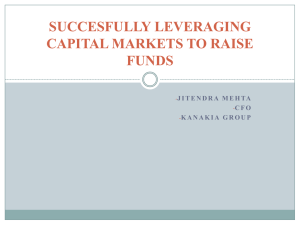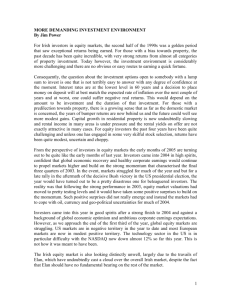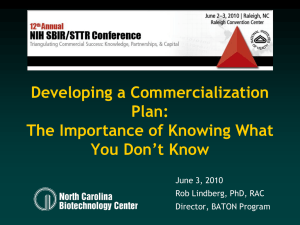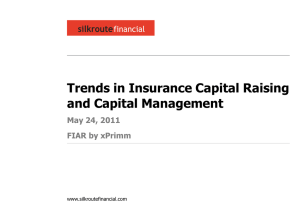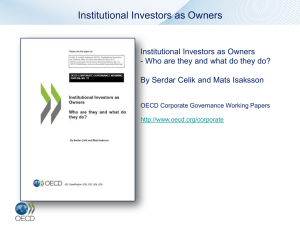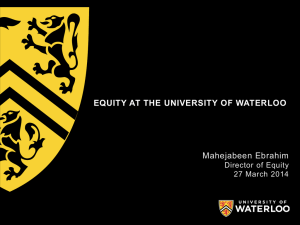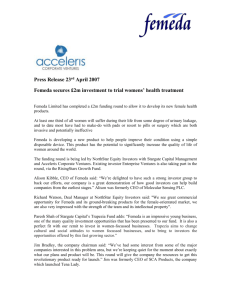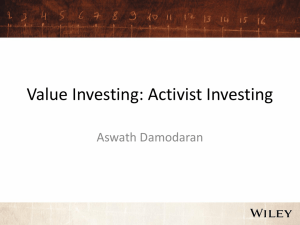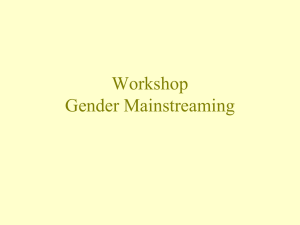writes - Eumedion
advertisement
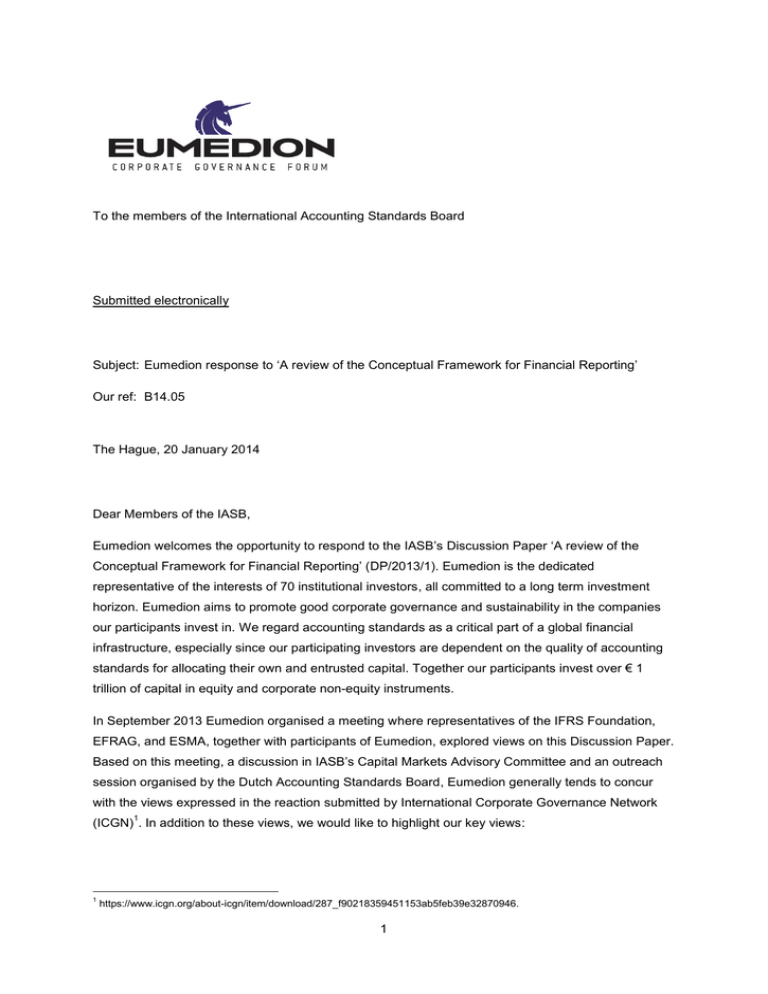
To the members of the International Accounting Standards Board Submitted electronically Subject: Eumedion response to ‘A review of the Conceptual Framework for Financial Reporting’ Our ref: B14.05 The Hague, 20 January 2014 Dear Members of the IASB, Eumedion welcomes the opportunity to respond to the IASB’s Discussion Paper ‘A review of the Conceptual Framework for Financial Reporting’ (DP/2013/1). Eumedion is the dedicated representative of the interests of 70 institutional investors, all committed to a long term investment horizon. Eumedion aims to promote good corporate governance and sustainability in the companies our participants invest in. We regard accounting standards as a critical part of a global financial infrastructure, especially since our participating investors are dependent on the quality of accounting standards for allocating their own and entrusted capital. Together our participants invest over € 1 trillion of capital in equity and corporate non-equity instruments. In September 2013 Eumedion organised a meeting where representatives of the IFRS Foundation, EFRAG, and ESMA, together with participants of Eumedion, explored views on this Discussion Paper. Based on this meeting, a discussion in IASB’s Capital Markets Advisory Committee and an outreach session organised by the Dutch Accounting Standards Board, Eumedion generally tends to concur with the views expressed in the reaction submitted by International Corporate Governance Network 1 (ICGN) . In addition to these views, we would like to highlight our key views: 1 https://www.icgn.org/about-icgn/item/download/287_f90218359451153ab5feb39e32870946. 1 1. Conditional support for ‘strict obligation approach’ We prefer a modification of the proposed strict obligation approach for the definition of equity: investors tend to expect non-controlling interest (NCI) to relate to equity that excludes preferred equity and other more hybrid types of equity. This often is the case; but we are also aware of cases where NCIs relate to a 100% owned subsidiary that issued a near-equity bond. We suggest that NCIs are measured based on the narrow equity approach. This solution also pre-empts the currently often unanswered question to what part of the equity classes the NCI relates. 2. Support for a redesign of ‘statement of changes in equity’ Eumedion also concurs with the need for an improved insight in the various equity and equity-like claims. We urge the IASB to not only require insight in the changes to the book value of the equities, but to equally require insight in how various equity classes have affected, and prospectively may affect, changes in the shares outstanding. This prospective information should be accompanied by insight in any related potential cash flows. Investors would also benefit if insight were given in the ‘worst case’ dilution in shares outstanding that any equity(-like) claim could cause. 3. Accounting choices Eumedion would like to see a strengthening of the currently too implicit aspiration in the Conceptual Framework that standards should not contain accounting choices. Even though the creation of an accounting choice by the standard setter may enhance the ability for a preparer to provide a more accurate insight, such choice also comes at a significant cost for the investor. Understanding a single line-item that may be measured in different ways at the discretion of 2 management has several rather negative consequences for users. QC 25 already states that accounting choices negatively affect comparability. Eumedion believes that the Conceptual Framework could and should mention additional reasons how accounting choices negatively affect the usefulness of financial statements. For example: • Accounting choices result in uncertainty for investors It requires significant effort from investors to understand which choice was made; or to understand to what extend a specific option was applied; and whether a different choice would result in significantly different amounts. • Accounting choices potentially allows for ‘window dressing’ Preparers may be tempted to choose an accounting choice that is not so much based on what choice provides the best insight for investors, but a choice that provides the most stable outcome, the most favourable outcome, or the most manageable outcome. Accounting options make it more difficult for analysts to distinguish the truly stable companies from those that use accounting choices to appear stable. Not only investors suffer from less efficient capital allocation decisions; capital can only be allocated once, therefore the better performing companies suffer as well from 2 Page 203 of the discussion paper: “QC 25: Although a single economic phenomenon can be faithfully represented in multiple ways, permitting alternative accounting methods for the same economic phenomenon diminishes comparability.” 2 accounting options as they stand out less. And all companies suffer from the increased uncertainty faced by investors. Even though IFRS currently contains only very few accounting options, we urge the IASB to more formally take the costs of accounting choices for users into account. 4. Other Comprehensive Income (OCI) Eumedion concurs with the view that the use of OCI can enhance the usefulness of financial reporting. We agree with the Board’s tentative view that the use of OCI as described under Approach 2A is justified. Even though we are hesitant to expand the use of OCI beyond 2A by also including transitory remeasurements (Approach 2B), we cannot rule out that this indeed could result in improved financial reporting. However, it is difficult to judge whether the mentioned criteria in Approach 2B are sufficiently strong safeguards against a too frivolous use of OCI. Besides, a renewed project on Financial Statements Presentation may result in new subtotals that could provide an alternative for the use of OCI in some cases. If you would like to discuss our views in further detail, please do not hesitate to contact us. Our contact person is Martijn Bos (martijn.bos@eumedion.nl, +31 70 2040 304). Yours sincerely, Rients Abma Executive Director Eumedion Zuid Hollandlaan 7 2596 AL THE HAGUE THE NETHERLANDS 3
